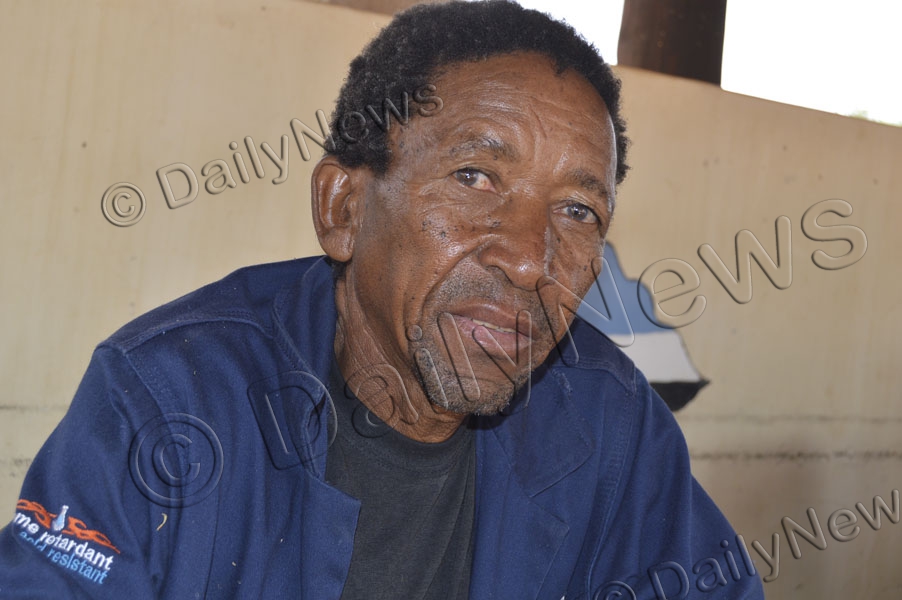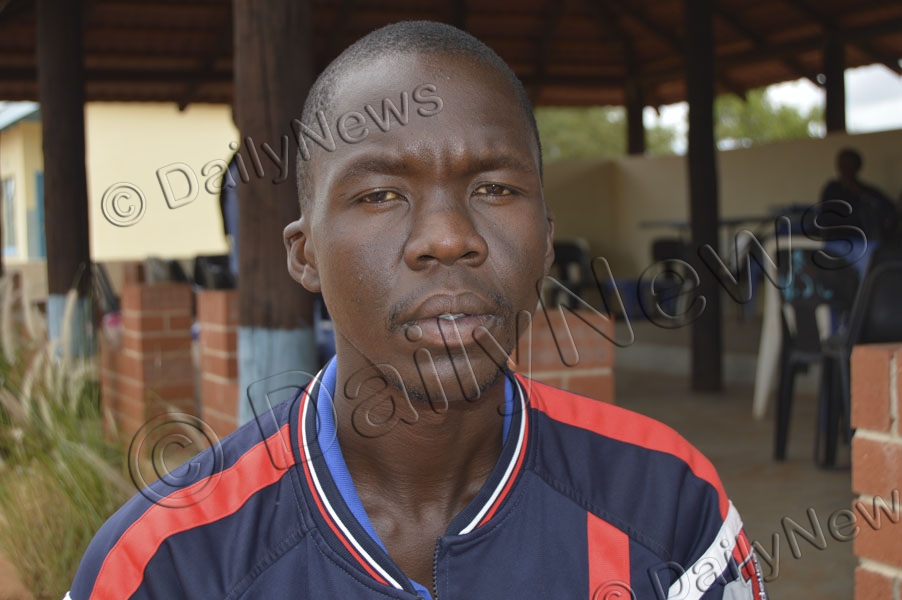Glimmer of hope for Setsile
17 Apr 2019
Despite its proximity to Mahalapye, the village of Setsile still yearns for modern developments, as the traditional lifestyle still reigns supreme.
Recognised as a village in September 2007, the settlement is still in dire need of social amenities.
However, residents are not deterred by the lack of developments to continue with their day-to-day lives.
In spite of its village status, the settlement is still dominated by livestock rearing and a substantial number of households have a kraal for small stock or cattle, a practice which is in conflict with the bye-laws.
Fortunately, the ravages of modern lifestyles are yet to impact on the traditional lifestyle.
In a recent visit to the village, which lies on the southern part of the tarred road from Mahalapye to Kudumatse, I interviewed some key figures in the community to get a detailed account of their lifestyle.
Despite its rural setup, Setsile is accessed through a tarred road, which gives residents hope that the future is bright.
Kgosi Senau Ramaribama, the only public servant in the village, has described Setsile as a melting point of cultures.
It is known as the village of Ditharapa, the name derived from the diverse culture of the different tribes found here, relates Kgosi Ramaribana.
“When the Bangwato relocated from Old Shoshong to Phalatswe, a portion of the tribe, together with some who were not Bangwato settled at Bonwapitse.
The different tribes that settled at Bonwapitse suffered another split with others moving to Shakwe while others came here,” he revealed.
Despite its small populace and lack of developments, Kgosi Ramaribana says oral history reveals that the settlement was established in 1910.
He also attributed the lack of developments to the fact that most residents, especially the young, moved to nearby developed settlements such as Mahalapye.
He said efforts were made by some aspiring entrepreneurs to establish grocery stores in the village, but that they failed due to the limited market, adding that life in the village was not easy as residents travelled to neighbouring villages for social amenities such as health, education and even to purchase food items.
He added that residents were dependent on temporary employment through Ipelegeng, and that some were engaged at surrounding cattle posts to look after livestock.
Despite the hardships, Kgosi Ramaribana said the village was still hopeful of getting developments in the future. He added that there was a glimmer of hope as the construction of a satellite primary school, through constituency funding, was on the cards.
At present, he said school going children were the most affected by the lack of developments, as they endured the pain of hitch-hiking every day to either Mahalapye, which was 25 kilometres away or Mokoswane, which was 20 kilometres, as some of their parents were not able to provide the daily transportation fees.
Despite the serene environment, Kgosi Ramaribana has noted that alcohol abuse and livestock theft were some of the challenges in the village.
He said traditional home brews were a challenge as some of the concoctions were unlawful while some of the brewers did not comply with the trading hours resulting in noise pollution and conflicts resulting in fights and other criminal acts.
He said farmers were also on the receiving end as livestock thieves were on the rampant.
Kgosi Ramaribana said livestock theft was a serious concern, adding that parents were also fueling the situation as they harboured some of the perpetrators.
He added that some livestock beneficiaries of government programmes were equally affected by the crime.
Even though the village was recognised in 2007, Kgosi Ramaribana said residents were at loggerheads with the land board, as it has frozen allocation of plots in the village.
He said most the residents had acquired the land illegally, and that the land board was yet to legalise their land ownership.
Kgosi Ramaribana also added that ploughing was minimal as residents were still awaiting the land board to allocate ploughing fields.
“To date only about 13 ploughing fields have been allocated in the village,” he said.
One of the village elders, 83-year-old Ms Motshidisi Kaorandwa said the settlement was established in the early 1900. “I was born here.”
She said residents were allocated the land by the Bangwato chieftainship.
The village has two wards of Ditimamodimo and Basimane. She said the names were derived from some of the major wards in Serowe, adding that she did not know why the village was named Setsile.
She said some were of the opinion that the name was of the person who was believed to be the one to settle there first.
Ms Kaorandwa said to date, the village still received water through bowsers, saying it was not reliable and that residents were at times forced to rely on the nearby Mahalapye River.
She was also concerned that most residents cultivated crops on land that had been acquired illegally, and that they could not access ISPAAD assistance since they did not have certificates.
As a result of limited employment opportunities, Ms Kaorandwa said some residents were engaged in traditional brew with the hope of making ends meet.
She said the only challenges was that alcohol fueled unruly behaviour and noise pollution as some remained open overnight.
She, however, contradicted the chief and commended the alcohol brewers for not brewing illegal concoctions.
Ms Kaorandwa expressed concern about some individuals from neighbouring villages who mined sand from the village without the consent of the community, adding that it was unfortunate as residents were not benefiting.
She added that the youth of Setsile were equally affected by the village state of affairs because they were dependent on Ipelegeng.
Mr Emmanuel Tjienda, one of the youthful residents of Setsile, said the situation was dire for them, and that the majority could not withstand such hardships.
However, Mr Tjienda said a limited number were able to make a breakthrough despite the stumbling blocks by taking advantage of government programmes such as LIMID, YDF and Nyeletso Lehuma to better their lives.
He added that despite the fact that the village was less developed, residents were determined to help it grow.
Like his elders, Mr Tjienda said alcohol and substance abuse were major challenges affecting the youth.
He added that efforts were made to help young people adopt positive behaviour and reduce teenage pregnancies and new HIV infections.
He said non-governmental organisations such as Mother Union Orphan Care Centre were encouraging the youth to adopt positive behaviour and engage in social structures likely to improve their lives such as metshelo.
Village Development Committee chairperson, Mr Moefesia Lefowane said although the village was established long before he was born, evidence relayed by the elders was that the past village leaders delayed registering the village with tribal leaders in Serowe, and that when land boards were given the authority to manage land, the village did not appear in their records.
Mr Lefowane added that in the past, efforts were made to relocate residents to developed settlements such as Mahalapye as they were illegally occupying the land.
“We pleaded with the authorities and our pleas were finally answered resulting in Setsile being recognised as a village,” he said.
Despite getting the village status and its proximity to Mahalapye, Mr Lefowane said Setsile was still less developed as allocation of residential plots was slow.
He said the VDC was also struggling to generate income as the two houses it owned remain vacant.
“We have opted to engage in brick moulding, but the bricks remain pilled as there are no construction projects taking place in the village,” he said.
The VDC was currently constructing public toilets at the village cemetery, he said. Mr Lefowane, however commended the VDC and the community for striving to keep the village intact despite the hardships. ENDS
Source : BOPA
Author : Moshe Galeragwe
Location : SETSILE
Event : Interview
Date : 17 Apr 2019









